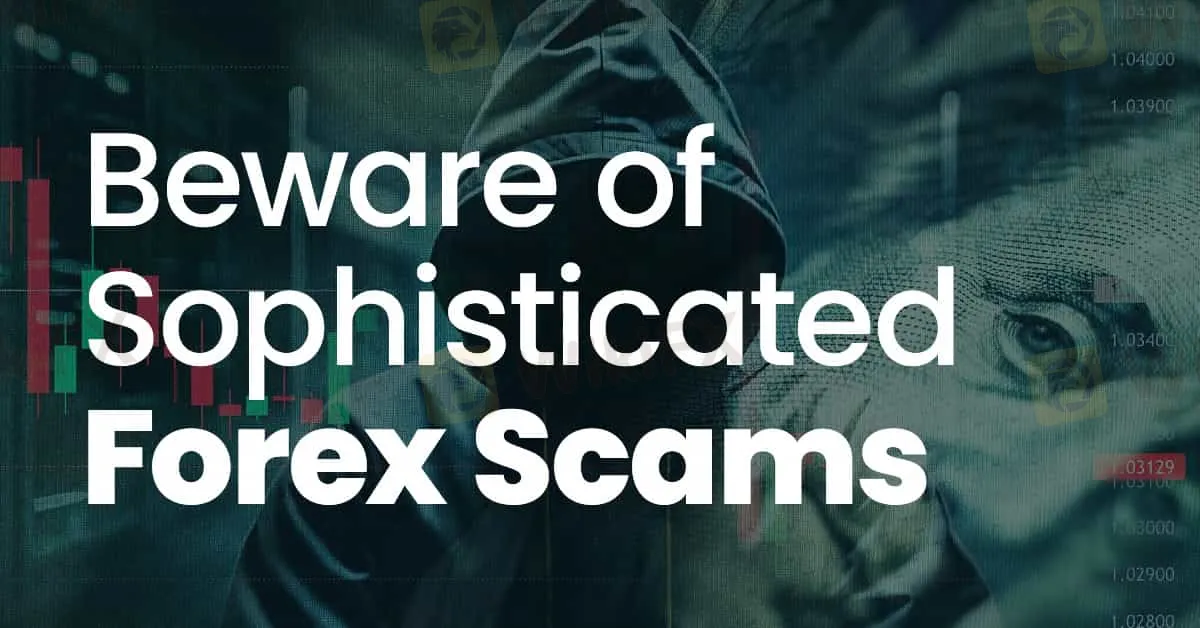简体中文
繁體中文
English
Pусский
日本語
ภาษาไทย
Tiếng Việt
Bahasa Indonesia
Español
हिन्दी
Filippiiniläinen
Français
Deutsch
Português
Türkçe
한국어
العربية
Unveiling the Algorithmic Mirage: Beware of Sophisticated Forex Scams
Abstract:The world of Forex trading is dynamic and ever-evolving, offering opportunities for profit but also attracting the attention of scammers seeking to exploit the unwary. One particularly deceptive form of scam that has emerged is the Algorithmic Mirage. In this article, we'll delve into the intricacies of this sophisticated scam, exploring how fraudsters lure traders with promises of cutting-edge technology and artificial intelligence, only to leave them with substantial financial losses.

The world of Forex trading is dynamic and ever-evolving, offering opportunities for profit but also attracting the attention of scammers seeking to exploit the unwary. One particularly deceptive form of scam that has emerged is the Algorithmic Mirage. In this article, we'll delve into the intricacies of this sophisticated scam, exploring how fraudsters lure traders with promises of cutting-edge technology and artificial intelligence, only to leave them with substantial financial losses.
The Allure of Algorithmic Trading
Algorithmic trading, also known as algo-trading, has gained popularity for its ability to execute trades with speed and precision based on pre-programmed criteria. Traders are drawn to the idea of leveraging advanced algorithms to navigate the complex and fast-paced Forex market, hoping to capitalize on market movements more efficiently than traditional manual trading.
The Scammer's Pitch
In the Algorithmic Mirage scam, fraudsters exploit traders' fascination with algorithmic trading by promoting a revolutionary trading system. Through enticing advertisements and persuasive marketing, scammers promise a one-of-a-kind algorithm that uses state-of-the-art technology and artificial intelligence to analyze market data and generate profitable signals.
Demo Version Deception
To convince potential victims of the algorithm's effectiveness, scammers provide access to a demo version of the trading system. This demo often showcases impressive simulated profits, creating a false sense of security and reliability. Traders, eager to capitalize on the promised gains, may be persuaded to subscribe to the full version of the algorithm.
The Live Trading Deception
Once traders subscribe and apply the algorithm to live trading, the deception becomes apparent. The algorithm may manipulate market data, creating a mirage of profits that are not reflective of actual market conditions. While the demo version showed consistent gains, the live trading results are often erratic and lead to significant financial losses for unsuspecting traders.
Manipulating Market Data
In the Algorithmic Mirage scam, scammers employ various techniques to manipulate market data. This could involve creating artificial price movements, exploiting liquidity gaps, or even executing simulated trades that don't impact the real market. By distorting the perception of the algorithm's performance, scammers aim to deceive traders into believing they have discovered a foolproof way to profit from the Forex market.
The Disappearing Act
As traders start experiencing losses and attempt to seek explanations or refunds, the scammers execute the final act of the deception – the disappearing act. Contact details become unreachable, and customer support is nonexistent. Traders are left bewildered, with no recourse for recovering their losses or holding the scammers accountable.
Protecting Yourself from the Algorithmic Mirage
Due Diligence:
Before investing in any algorithmic trading system, conduct thorough research on the provider. Look for reviews, testimonials, and independent analyses to verify the legitimacy of the service.
Realistic Expectations:
Be wary of promises that seem too good to be true. Algorithmic trading, like any form of trading, involves risk, and there are no guarantees of consistent profits.
Trial Periods and Refund Policies:
Legitimate providers often offer trial periods or money-back guarantees. Use these opportunities to test the algorithm's performance in real market conditions before committing to a subscription.
Regulatory Compliance:
Check if the trading system provider is registered with relevant financial authorities. Reputable providers adhere to regulatory standards, providing an additional layer of security for traders.
Enhancing Your Due Diligence with WikiFX
In the quest for a trustworthy trading environment, WikiFX acts as a reliable companion, offering not just information but also a community of traders sharing their experiences and insights. The collaborative nature of the platform creates a network of informed traders, strengthening the collective defense against fraudulent schemes.
When considering an algorithmic trading system or any Forex-related service, WikiFX can be an invaluable ally in your due diligence process. By leveraging WikiFX's extensive database and analytical tools, traders can verify the legitimacy of trading platforms, ensuring they are dealing with reputable and regulated entities.
WikiFX's user-friendly interface allows traders to access broker profiles, read real user reviews, and explore regulatory information with ease. This transparency helps traders make educated choices, reducing the risk of falling victim to scams such as the Algorithmic Mirage.
To explore the wealth of information that WikiFX has to offer and to enhance your trading journey, visit their website at www.wikifx.com. Empower yourself with knowledge, protect your investments, and join the global community of traders making informed decisions with WikiFX. Your journey to a safer and more secure Forex trading experience begins here.

Disclaimer:
The views in this article only represent the author's personal views, and do not constitute investment advice on this platform. This platform does not guarantee the accuracy, completeness and timeliness of the information in the article, and will not be liable for any loss caused by the use of or reliance on the information in the article.
Read more

Consob Blocks Three Unlicensed Financial Websites in Ongoing Crackdown
Consob ordered the blackout of three unauthorized financial websites, warning users of the growing risks of fraudulent trading platforms. Total blacklisted sites now exceed 1,300.

Thinking of Investing? Read Must-Know Facts About Funding pips!
When you check the internet for Funding Pips, you'd be surprised to know it's filled with praise for Funding Pips but often lacks the real facts that traders need. Everything that seems too good to be true should always be verified first. It could be Fraud . So, we conducted research and collected several facts you must know about Funding Pips.

OctaFX Back in News: ED Attaches Assets Worth INR 134 Cr in Forex Scam Case
The Enforcement Directorate (ED) in Mumbai has attached assets worth around INR 131.45 crore. This included a luxury yacht and residential properties in Spain. Read this interesting story.

Truth About Angel One – Here’s What You Need to Know
Thinking about investing in Angel One? Wait! Know the essential things about the broker before Invest. It could be SCAM. Read, think, and invest .
WikiFX Broker
Latest News
Forex Hedging: Is It a Trader’s Safety Net or Just an Illusion?
OPEC+ members agree larger-than-expected oil production hike in August
Top Wall Street analysts are pounding the table on these 3 stocks
Stock futures fall after Trump team says tariffs will go into effect on Aug. 1: Live updates
FCA clarifies expectations on bullying, harassment and violence to deepen trust in financial service
Asia-Pacific markets mixed after Trump shifts goalposts on tariffs again
XS.com Expands Global Reach with Landmark Kuwait Launch
European markets set to open mixed amid fresh U.S. tariff threats
Asia-Pacific markets set for mixed open after Trump shifts goalposts on tariffs again
CNBC Daily Open: Most people don't start a political party after separation
Currency Calculator


